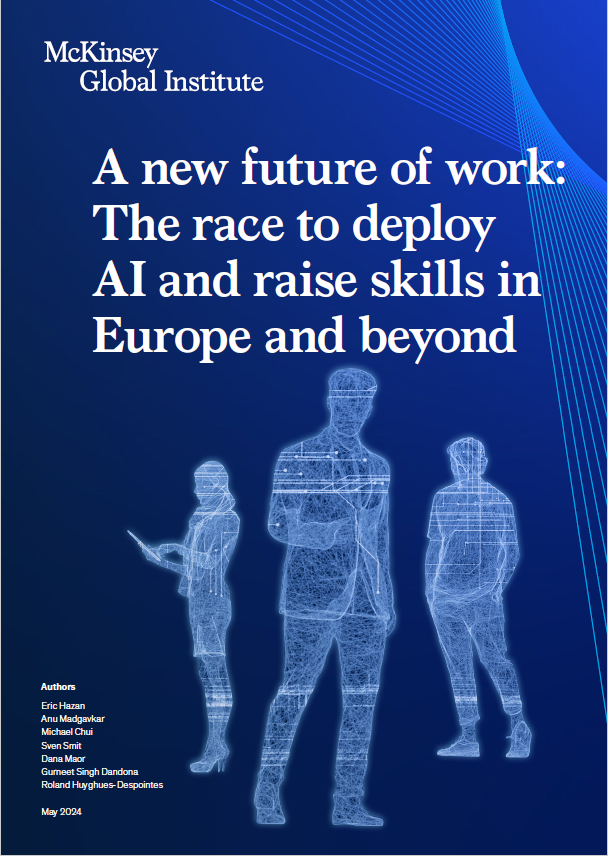Popular
McKinsey report – A new future of work: The race to deploy AI and raise skills in Europe and beyond
Description
Key learnings:
- Transformation of labor demand:
- The rise of AI and automation is set to significantly transform labor demand. High-skill professions, particularly in STEM-related fields and healthcare, will see increased demand. Conversely, occupations like office work, production, and customer service will experience a decline. This transformation will necessitate substantial occupational transitions, with Europe requiring up to 12 million such transitions by 2030.
- Urgent need for skill upgrades:
- Businesses will need to focus heavily on upgrading skills to keep pace with technological advancements. The demand for advanced IT, data analytics, critical thinking, creativity, and teaching skills will grow. Addressing these skill gaps is crucial for both businesses and workers to remain competitive and adapt to new roles, particularly as lower-wage jobs diminish and higher-wage jobs proliferate.
- Impact on productivity and economic growth:
- Embracing technological change and investing in workforce retraining can significantly boost productivity and economic growth. Accelerated technology adoption could lead to annual productivity growth rates of up to 3% in Europe. However, slow adoption and inadequate worker redeployment may severely limit productivity improvements, exacerbating labor market imbalances and economic disparities.
#AI #Automation #Growth
